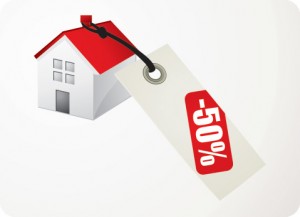CoreLogic released the findings of its latest Home Price Index (HPI) yesterday, highlighting the profound impact of distressed sales on the U.S. housing market’s makeup.
Excluding distressed sales, home values increased 0.7 percent from January to February and decreased 0.8 percent from February 2011; however, when distressed sales, which involve short sales and REO transactions, are included, monthly prices fell 0.8 percent and year-over-year prices by 2.0 percent.
Mark Fleming, the chief economist for CoreLogic, said that though prices did decline in the latest HPI, they did so as a lesser rate, which is an encouraging sign.
“House prices, based on data through February, continue to decline, but at a decreasing rate. The deceleration in the pace of decline is a first step toward ultimately growing again,” Fleming said. “Excluding distressed sales, we already see modest price appreciation month over month in January and February.”
The impact of distressed sales on the market is further reinforced by other highlights of CoreLogic’s report. For instance, when including distressed sales, the five states with the highest appreciation were West Virginia (+8.6 percent), Michigan (+5.8 percent), Florida (+4.7 percent), Arizona (+4.5 percent) and South Dakota (+4.1 percent); when excluding distressed sales, though, the makeup is entirely different, with South Dakota (+5.9 percent), West Virginia (+5.6 percent), Maine (+4.5 percent), Utah (+3.7 percent) and Montana (+3.6 percent) coming out on top.
Stats for depreciation were similarly varied. When including distressed sales, the five states with the greatest depreciation were Delaware (-11.2 percent), Connecticut (-7.9 percent), Rhode Island (-7.8 percent), Illinois (-7.1 percent) and Georgia (-6.6 percent), but when excluding distressed sales, the states were Delaware (-8.7 percent), Connecticut (-4.9 percent), Nevada (-4.6 percent), Vermont (-4.0 percent) and Minnesota (-3.3 percent). Though Delaware and Connecticut remained consistent, none of the other three states matched.
